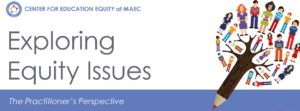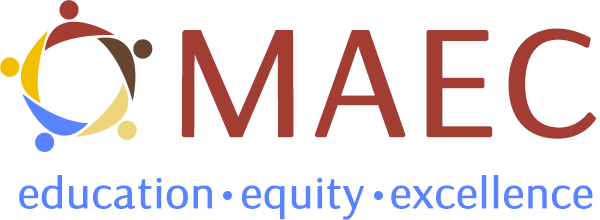Mommy, Daddy, Where are we Sleeping Tonight

By Ja’Sent Brown
DC Reengagement Center
Office of the State of Superintendent of Education
Former Homeless Education State Coordinator of Washington, D.C.
February 2018
Describe your school or district (urban/rural, demographics, K-8, has it recently been combined with another school, etc): Washington, D.C. is an urban area that serves a variety of students through its public education system. The District of Columbia is one of the few areas that offers free public preschool education for ages 3 and 4. They also offer traditional public education for grades K-12. Finally, they offer adult education programs for under credited youth and adults of all ages.
Describe your experience related to this issue. Was there a specific event that triggered the issue or has it been occurring for a long time? My experience with youth facing homelessness started when I was 8 years old and my family home caught on fire in the 1980s. We lost everything. My first question to my parents was “mommy, daddy, where are we sleeping tonight”? I will never forget the look on their face. My family and I were forced to move into a motel which was miles away from my school, friends, and community. The motel was a traditional one room style unit, and lacked a refrigerator and microwave. This meant that my parents were not able to cook meals for us which lead to eating fast food almost every day. Outside of the weight gain because of the unhealthy meal options, I also faced hardships around my education. I remember getting up before the sun was out and rushing out of the room to so that we could make it to my school across town in time. I was often late, and had to spend some recesses catching up on work that was completed in the mornings. There was no help for my family with transportation to school, clothing, food, or any other resources. We were on our own. My family remained homeless for one year before we were able to get stable housing again. By that time, my parents had separated, I was overweight, and my grades were suffering.
While my experience was tragic, it paved the way for my experience in homeless education as an adult. After college, I ended up working at the state education agency in Washington, D.C. There, I worked with several programs for low-income families. Eventually, I found my way to the homeless education program and eventually became the homeless education state coordinator. As the universe usually does, my life came into full circle and everything that I had experienced as a child had a new meaning. It was my sole responsibility to ensure that homeless youth in the District of Columbia was able to attend and succeed in school. It was also my responsibility to make sure that the district, schools, and the community was doing everything that they could to support homeless families to ensure that their children were successful.
What strategy did you employ to address the situation? As the homeless education state coordinator, I had the federal backing of the McKinney-Vento Homeless Education Act to implement the necessary changes in the District for homeless youth. However, the strategy that I used was a more philanthropic approach. I am able to advocate for these families because they are a reflection of my family and my own experience. But, let’s say that you don’t have experience being homeless. In my current role, I work with youth who are 16-24 years old and have dropped out of high school. Around 30% of our youth are homeless and unaccompanied (meaning that they are without a parent or guardian). Many of these youth sleep on the street every night. I didn’t have any personal experience with being “literally homeless”. As a result, one strategy that I employed was to participate in the Covenant House National Sleepout. This is an annual event where you literally sleep outside in the middle of November to raise awareness and understand the personal experience of youth who have to sleep outside every night. When I first participated in this event, someone told me that no matter what time of year it is, it is always cold at 3 o’clock in the morning! Please believe me when I say that this is true! However, I now have a since of urgency when a homeless youth comes to my office and says that they have nowhere to sleep that night. I instantly feel the chills run through my body as my brain recalls the below freezing temperatures of the previous years. I then empathize even more, because I only had to experience one night of this trauma, and they experience it every night. It’s life altering.
What did you learn and what would you do differently if you had to do it again? If I could go back and talk to my 8 year old self, I would try to convince myself that everything that I am experience isn’t for me, but it’s for the over 5,000 homeless youth in Washington, D.C. that are going to need you one day. They are going to need someone to look them right in the eyes and say that things will get better, because they got better for me. Fast forward to my adult self, and I would tell myself when I first became the homeless education state coordinator to push harder for funding around youth homelessness. Don’t be afraid to rock the boat, and walk out of a meeting in outrage at someone saying that there aren’t any kids sleeping on the street in the District! I have learned that sometimes you have to be viewed as “the angry black woman” if you know that thousands of little lives are at stake.
Did you use any best practices that you can refer the reader to? If I were to pass on any best practices to the reader, I would tell them to get involved. Go to your local shelters, volunteer, and talk to the residents. Attend the Inter-Agency Council on homelessness meetings held by your state government and voice your opinion. These meetings are open and usually have an outlined time for the community to speak. Finally, understand how your local system works. Each community is different. There might not be any government run shelters for miles, but there might be a church or safe haven house to refer homeless families. Take time to find out which agencies run the programs and how to increase your chances of finding shelter through these programs. Learn the system, and work the system.
The Center for Education Equity (CEE) at MAEC is inviting members of our advisory board, partners, and other colleagues to share their views on current equity issues. Their opinions do not necessarily reflect CEE’s views or those of the Department of Education and we do not necessarily endorse any products or resources they promote.


